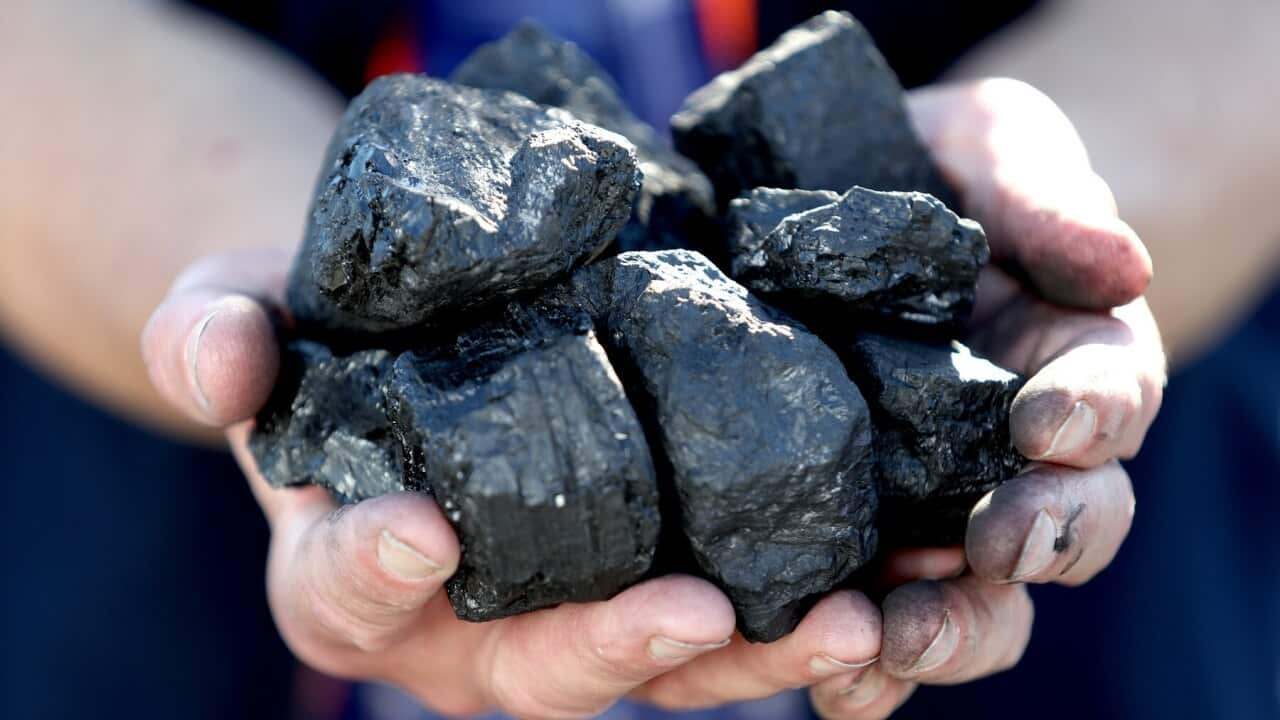Australia is notably absent from a large cohort of countries due to pledge to phase out coal-fuelled power generation and stop building new plants, in a deal the COP26 summit's British hosts said would commit 190 nations and organisations to quit the fuel.
Coal is the most polluting fossil fuel and greenhouse gas emissions from burning it are the single biggest contributor to climate change. Weaning the world off coal is seen as vital to achieve globally agreed climate targets.
Signatories of the COP26 agreement agreed to shun investments in new coal plants at home and abroad, and phase out coal-fuelled power generation in the 2030s in richer countries, and the 2040s for poorer nations, the British government said.
"The end of coal is in sight. The world is moving in the right direction, standing ready to seal coal’s fate and embrace the environmental and economic benefits of building a future that is powered by clean energy," British business and energy secretary Kwasi Kwarteng said.
Australia is not among the countries that are set to be signatories to the new deal, sparking disappointment from climate advocacy groups.
The Climate Council says Australia is lagging behind in its efforts to transition away from coal.
"First, we refused to join more than 100 other countries in the global methane pledge, and now this. Australia is so out of step and out of touch with the rest of the world, and that’s going to harm our economy, climate and future prosperity," The Climate Council's Professor Will Steffen said.
"Australia is acting as a handbrake on global climate action. Government representatives are spruiking gas, a fossil fuel, and carbon capture and storage at this climate conference and are resisting the push to phase out fossil fuels globally."
Speaking to SBS News in Glasgow, Energy Minister Angus Taylor defended the Australian government's decision not to sign up to the pact.
"We have a whole of economy target, we don’t set sector specific or gas specific targets. Our focus is on bringing down the cost of low emissions technologies, not wiping out industries."
Some of Australia’s coal customers have joined the pledge.
"That is their choice and they will do as they see fit, and that’s absolutely appropriate," said Mr Taylor.
"We will supply the products our customers need as they bring down their emissions over time."
The Powering Past Coal Alliance - an international campaign aimed at phasing out the fuel - said it had secured 28 new members, including Ukraine, which pledged to quit the fuel by 2035. Coal produced roughly a third of Ukraine's power last year.
Factors including concerns over planet-warming pollution and a worsening economic profile for coal-fuelled generation have curbed its share in wealthy western countries including Britain, Germany and Ireland over the last few decades.
But coal still produced around 37 per cent of the world's electricity in 2019, and a cheap, abundant local supply means the fuel dominates power production in countries including South Africa, Poland and India. These countries will require huge investments to shift their industries and energy sectors onto cleaner sources.
The global pipeline for new coal power projects has shrivelled in recent years, although China, India, Vietnam and Indonesia are among those planning to build new coal plants.
Britain did not confirm if those countries would be involved in the COP26 coal phase-out pledge, or if Vietnam's pledge on Thursday would affect its pipeline of coal projects already in the pre-construction stage.
China said in September it would stop funding overseas coal plants, although the pledge did not cover domestic projects.
A raft of finance announcements are expected at COP26 on Thursday to accompany the coal pledges - both through new investments in clean power, and funds to support workers and regions that depend on the coal sector for their livelihoods.
Countries including Britain and the United States announced a $11.4 billion partnership with South Africa at the COP26 conference on Tuesday, to help the country phase out coal faster.
Additional reporting: Reuters











